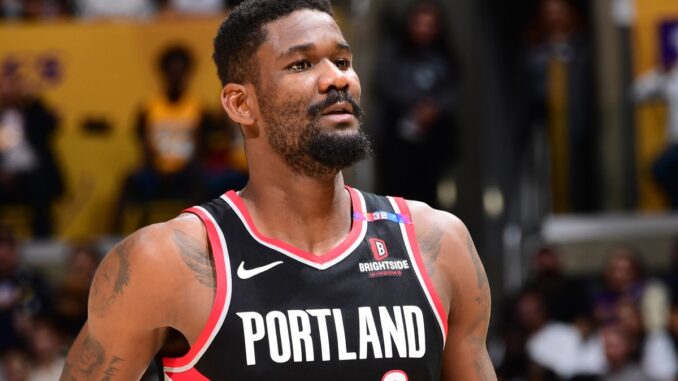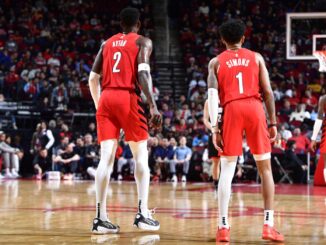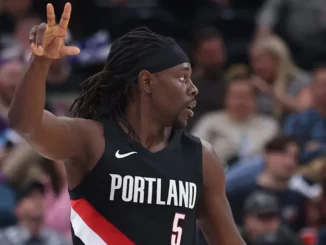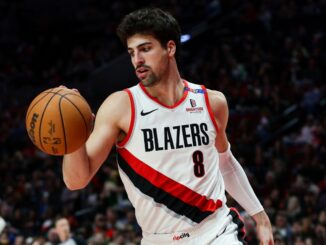
When you’re trying to accumulate ping-pong balls instead of wins, the purpose of every game shifts. Development takes priority. For the Portland Trail Blazers, it’s about giving guys like Scoot Henderson, Shaedon Sharpe, Donovan Clingan, and company the reps they need to grow.
Eighteen months after trading franchise icon Damian Lillard to start a long-term rebuild, it’s hard to say how much progress has been made. The concerns that plagued Henderson’s rookie year are still there, with his efficiency and shot selection continuing to be just as abysmal—Sharpe’s inconsistent, streaky play as a scorer persists. Kris Murray and Rayan Rupert, other youngsters the front office has invested in, remain outside the rotation.
Why has that been the case? Well, it’s hard to improve when you aren’t being given the chance to.
Throughout all this, the Blazers have kept many high-paying veterans on the roster. As long as they’re there, they’ll play—a lot. This means that most of the young core rarely sees the floor during the start of a key matchup or the final minutes of close games, where they could learn from real-pressure situations. It’s not like performances from the older guys are leading to many more wins, either, making their presence almost purposeless.
26-year-old DeAndre Ayton might be the biggest liability of them all, too. His box score numbers definitely look good—even fantastic at times—but his effort has often been questionable. Whether it’s on defense, grabbing rebounds, or showing the necessary intensity in late-game moments, Ayton’s focus can be straight-up bad. Never mind that he requires a starting role and 30+ minutes a night, while last June’s seventh-overall pick in Clingan, who you can argue is already a more impactful player, is working with just under 16 minutes per game.
The simple option would be to trade Ayton, but that’s much easier said than done. With multiple seasons left on a 4-year, $133 million contract, most of the league considers him a negative asset. If you want to move him, you’d probably need to attach other assets to sweeten the deal—and the Blazers obviously have no interest in doing that.
Benching him could create tension due to his past with Monty Williams in Phoenix. Ayton has a reputation for being sensitive to criticism. A fractured locker room is the last thing head coach Chauncey Billups needs while he’s fighting to keep his job right now.
This all goes back to some of the decisions made over this last year and a half. The front office should’ve prioritized expiring contracts and draft capital when blowing it up. More cap flexibility would’ve allowed them to take on bad contracts and get even more assets in return. Veteran leadership is important, but it shouldn’t be taking a ton of opportunity from the guys you hope to be a part of the next great Blazer team. The ideal mentors, like Chris Paul or Kyle Lowry, help teach winning habits and professionalism, but Ayton and most of Portland’s veterans haven’t shown that kind of impact.
With the trade deadline just a month away, it’s time for General Manager Joe Cronin to make some decisions. Cronin has been extremely patient in selling some of these older players, even mentioning in an interview last week that he will only be active if the “right deals” arise. But as the big day looms, one has to ask: are these the people you want around your young core?




When you have centers go down as often as Portland does, having Ayton isnt a problem. He has been better at screening and becoming more effective. I do want to see Clingan, but I dont think his knee is 100% yet. When he comes in a dominates again, his minutes will go back up.
Just because we are rebuilding doesnt mean you have to dump guys in their prime just to trade for somr other high contract that you still have to fit in. These guys are syill getting to know each other and figure it out. They ate in games and winning some tough ones. Stop with the have to trade everyone rhetoric, watch the games and take some effort to talk about the development that is happening.